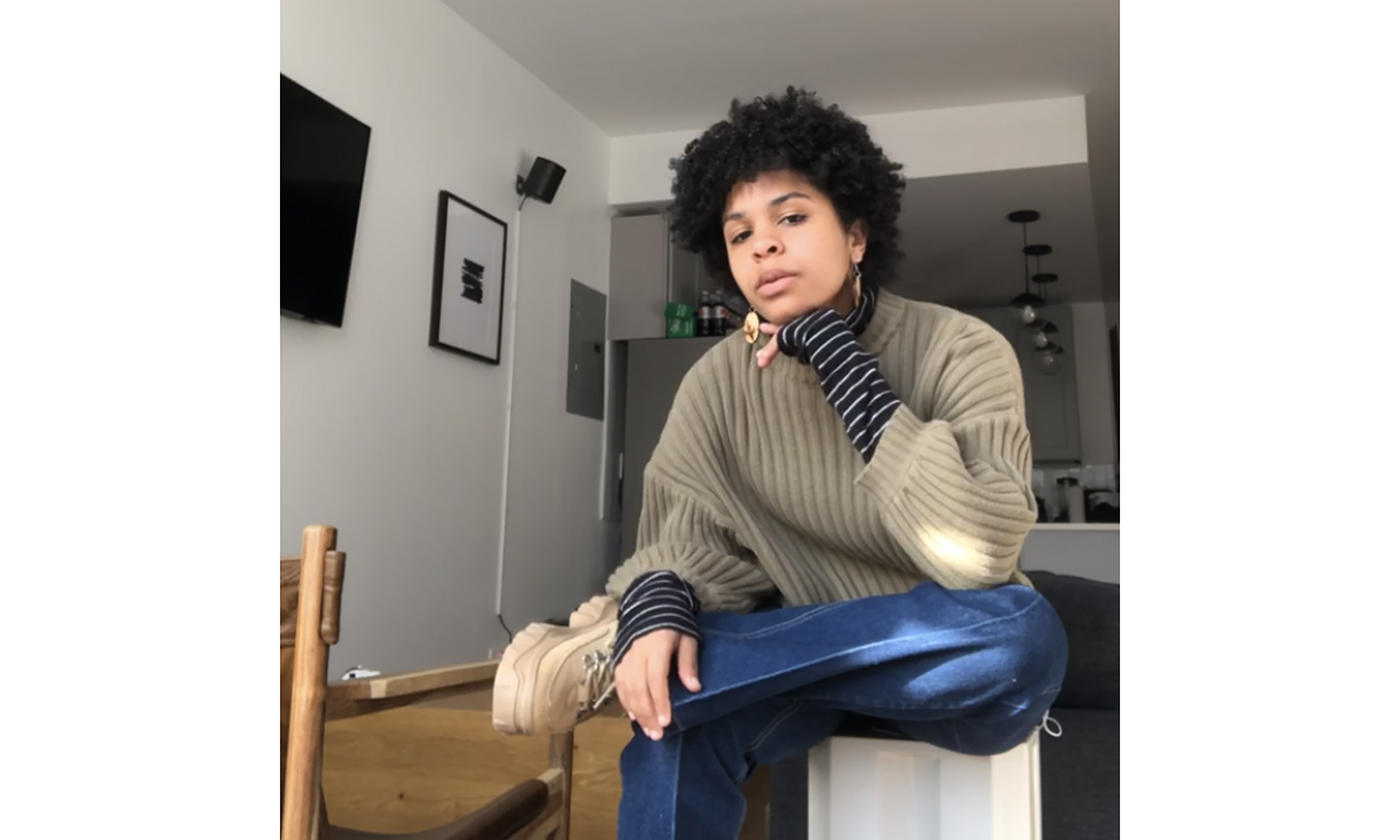On Pratt’s campus, Sarah Kanu, BFA Communications Design (Illustration) ’21, works across the Institute to advocate for change, most recently leading the charge to develop a Black Studies program in the School of Liberal Arts and Sciences.

In celebration of Women’s History Month, Pratt is sharing the stories of women who are making history today by organizing in their local communities. Follow the Q&A series on the Pratt.edu news page and the @PrattInstitute Instagram for updates throughout March. This is the third in the series:
On Pratt’s campus, Sarah Kanu, BFA Communications Design (Illustration) ’21, works across the Institute to advocate for change, most recently leading the charge to develop a Black Studies program in the School of Liberal Arts and Sciences.
As president of the Black Student Union and Diversity, Equity and Inclusion chair for the Pratt Student Government Association, Kanu is an advocate for the student body, weaving together her creative work with her liberal arts minor in Social Justice/Social Practice.
Why do you think creativity is important in your work?
Because the work is about engaging people, and no one wants to be involved with an initiative, project, or dream of a new world that isn’t inspired! Ya know? Also, everyone’s labor and time are, one: precious, and two: overextended, not just now but before the pandemic and, sadly, after as well. That means when we are in service, we must move with intention, care, and pleasure to make the most out of it. And the most doesn’t necessarily mean a completed goal, a success story, or the desired task fulfilled. I’ve had initiatives go nowhere, but the conversations that occurred along the way were enriching, uncomfortable, and needed.
Is there anything about your experience at Pratt that influences your work?
My friends, peers, and professors are the primary and consistent sources of influence for me. Going off the former question, this work is work, and if it is not coinciding with relationship building and mutual inspiration, the burn-out will arrive fast.
What advice would you give to someone who wants to get involved in organizing in their communities?
Start with you. I say this in two ways. One is, you gotta come correct with yourself before you can try to come correct with anyone else. Check yourself—your privileges, intersections, faults, and motivations—before you wreck yourself. And although there is value in failure, harm can also occur when working with others (or whole communities), and we should strive to avoid that by being honest with ourselves. The other way is that you begin organizing around communities you are amongst. This is the quickest way to get involved, and drawing from the “check yourself, before you wreck yourself” mentality, we can move away from a savior or rescuer mentality.
How does being a woman inform your work and are there any women organizers you are inspired by?
Being perceived as a woman impacts how I move in the world, therefore informing how I go about being visible. I also have a panic disorder and social anxiety, so I prefer a form of activism that is much more behind the scenes. I’m comfortable and happiest imagining and crafting realities, experiences, and projects that are intimate and dialogic in nature and offer the space for respite and release for others to recharge between getting into the world and demanding more for themselves and their community.
I look to uplift, honor, and am inspired by all Black women. But folks I go to frequently over the past two years have been educators in particular, although educator and organizer in practice are often converging terms. If I had to give specific names: Ericka Hart, Gabrielle/Ifademilade, and adrienne maree brown, to name a few.
For more of the Pratt Women Organizing for Change series, see the previous Q&As with NYC Councilmember Laurie A. Cumbo and Mia Bruner of the Prison Library Support Network.